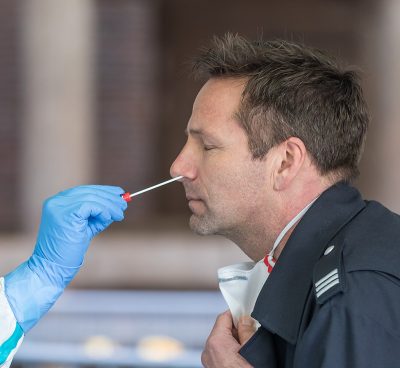
Boston University has put in place mandatory community health protocols for Fall semester, President Robert Brown announced in an email Wednesday to BU faculty.
“While the announcement was a milestone in that process, it was by no means the end of the work,” Brown wrote. “There are many questions that we have not answered and plans that still need to be finalized.”
Individuals will be split into four categories to determine the frequency of testing required, according to the email. Those in category one, which includes undergraduate students living on-campus, will be tested most frequently.
In descending order of testing frequency, category two includes those residing off campus, category three encompasses commuting employees who’ll have minimal contact with others at the university and category four comprises those learning exclusively virtually.
Labs within the Kilachand Center for Integrated Life Sciences & Engineering will process samples using the reverse transcription-polymerase chain reaction test. Catherine Klapperich, the biomedical engineering professor who is leading the testing project, wrote in an email that BU chose the test because of its reliability.
“In order to guarantee fast enough turnaround time to serve our residential community, we need to be in control of the testing process,” Klapperich wrote. “RT-PCR is the most reliable molecular test for the virus. It can also detect people before they show symptoms.”
Students will use a nasal swab to obtain their own sample for testing, Klapperich wrote.
“Self-sampling will be done in person at a test site, so help will be nearby if you need it,” Klapperich wrote. “We will be asking people to swab their anterior nares, which is inside the lower nostrils. These swabs are soft and easy to use.”
Klapperich wrote that the University also plans to implement robot use in its COVID-19 testing, which would allow 5,000 samples to be processed each day.
“Everything except for sample intake will be carried out robotically,” Klapperich wrote. “Of course, humans are needed to maintain the robots, to ensure that the robots are performing correctly, and to maintain quality control.”
BU Spokesperson Colin Riley wrote in an email that these plans will help restore BU campus to its new normal.
“The public health protocols and testing program are essential to the restoration of academic and residential life this fall,” Riley wrote. “They will enable the university to quickly identify any cases of coronavirus and respond appropriately to stem its spread.”



























































































































